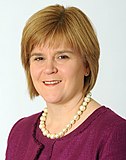United Kingdom general election, 2015
|
|
|||||||||||||||||||||||||||||||||||||||||||||||||||||||||||||||||||||||||||||||||||||||||||||||||||||
|
|||||||||||||||||||||||||||||||||||||||||||||||||||||||||||||||||||||||||||||||||||||||||||||||||||||
|
|||||||||||||||||||||||||||||||||||||||||||||||||||||||||||||||||||||||||||||||||||||||||||||||||||||
|
|
|||||||||||||||||||||||||||||||||||||||||||||||||||||||||||||||||||||||||||||||||||||||||||||||||||||
| Colours denote the winning party, as shown in the main table of results. * Figure does not include the Speaker of the House of Commons John Bercow, who was included in the Conservative seat total by some media outlets. |
|||||||||||||||||||||||||||||||||||||||||||||||||||||||||||||||||||||||||||||||||||||||||||||||||||||
|
|||||||||||||||||||||||||||||||||||||||||||||||||||||||||||||||||||||||||||||||||||||||||||||||||||||
| 2001 election • MPs |
| 2005 election • MPs |
| 2010 election • MPs |
The United Kingdom general election of 2015 on 7 May 2015 elected the 56th Parliament of the United Kingdom. Each of the 650 parliamentary constituencies elected one Member of Parliament to the House of Commons, the dominant house of Parliament. It was the first general election at the end of a fixed term Parliament. Local elections took place in most of England on the same day.
Polls and commentators had predicted the outcome would be too close to call and would result in a second hung parliament similar to the 2010 election. Opinion polls were eventually proven to have underestimated the Conservative vote as they won a surprise outright majority, which bore resemblance to their victory in the 1992 general election. Having governed in coalition with the Liberal Democrats since 2010, the Conservatives won 330 seats and 36.9% of the vote, this time winning a working majority of 12.
...
Wikipedia





